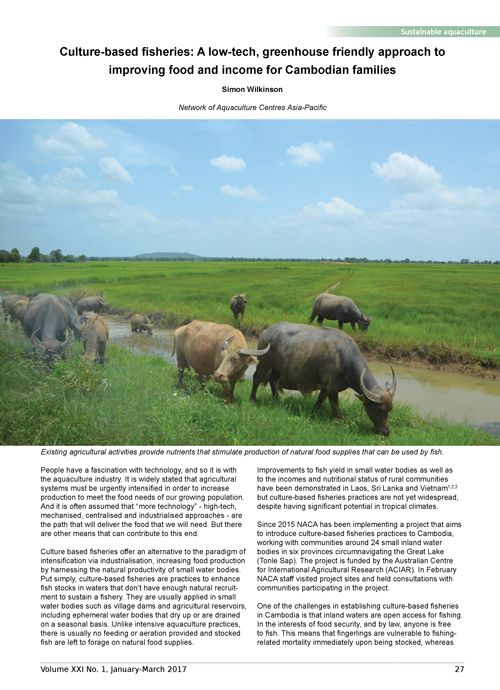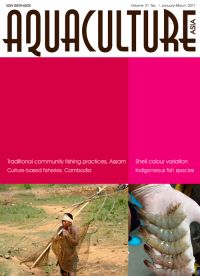Culture-based fisheries: A low-tech, greenhouse friendly approach to improving food and income for Cambodian families
20 March 2017 | Simon Wilkinson | 1237 Downloads | .pdf | 2.8 MB | Cambodia, Emerging Global Issues, Culture-based fisheries, Livelihoods, gender and social issues, Environment and Sustainability
Improvements to fish yield in small water bodies as well as to the incomes and nutritional status of rural communities have been demonstrated in Laos, Sri Lanka and Vietnam but culture-based fisheries practices are not yet widespread, despite having significant potential in tropical climates.
A project to introduce culture-based fisheries to Cambodia is described. As public water bodies are open-access to fishing by law, fingerlings were stocked in netted partitions of conservation areas set aside in each water body by law, to protect the fingerlings while they grew for a period prior to release.
Participating communities reported significant increases in catch per unit effort and an increase in the number of people engaged in fishing. Households reported lower food costs due to increased access to local fish and improved incomes through sale of catch. Communities expressed increased interest in protecting the conservation area and reported that catch of non-stocked fish species had also increased. Options to sustain stocking via revolving funds and cooperatives are under consideration.
Creative Commons Attribution.

